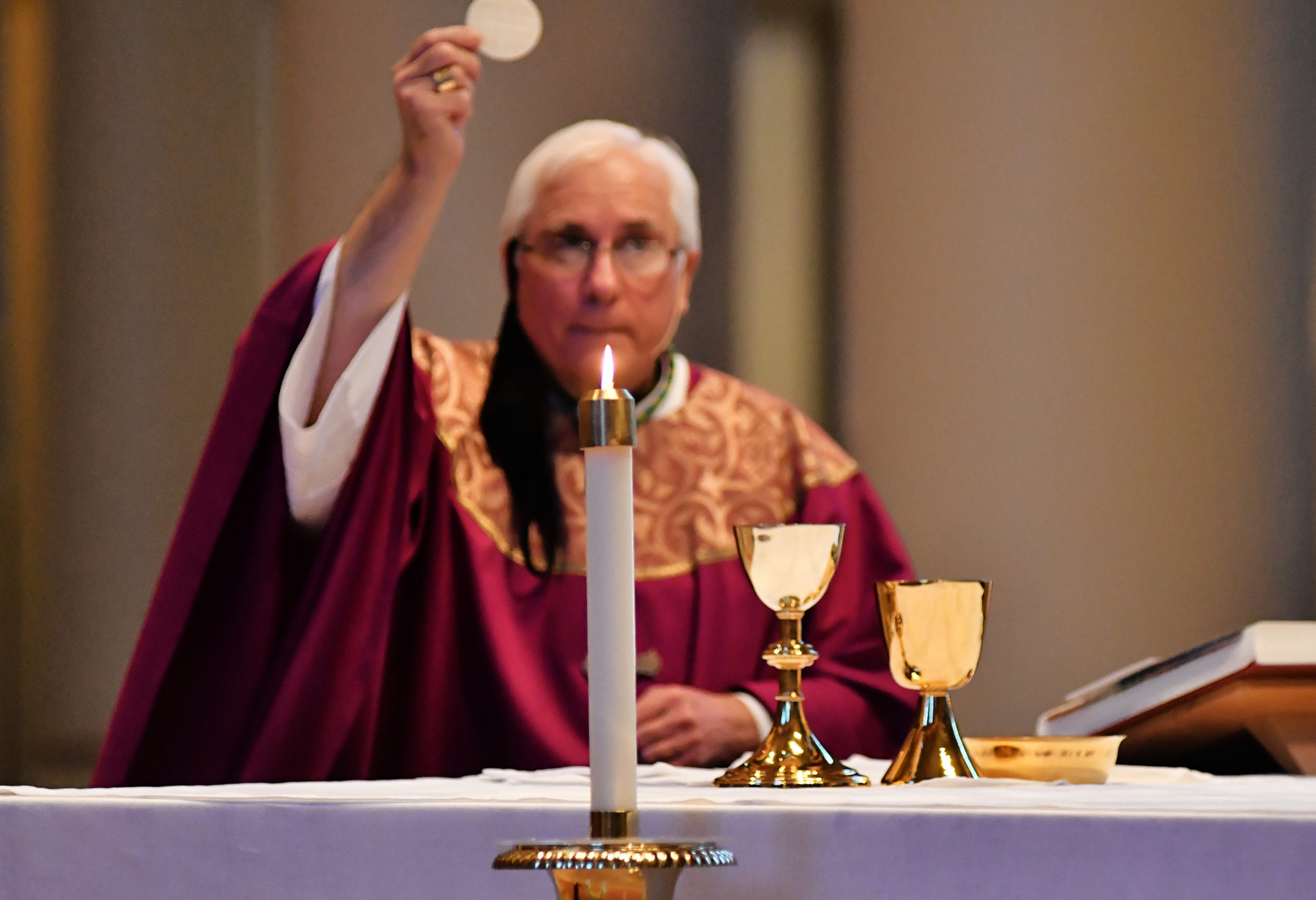The Gift of Sunday

Published with the ecclesiastical approval of Archbishop Jerome Listecki, “The Gift of Sunday” is a theological reflection which explores the preeminence of Sunday worship in the life of the Catholic. Its accompanying study guide can be used for personal or group discussion. This is the final installment in a series of three articles wherein experts help us address different questions contained within the study guide. To read “The Gift of Sunday” and its study guide in their entirety, visit archmil.org/Sunday-Initiative/Reflection.htm.
Archbishop Listecki has also commissioned the publication of a book, ‘Living the Gift of Sunday,’ which contains 10 weeks of reflections on carrying the meaning of Sunday into everyday life. The booklets are being distributed at many parishes for Easter Vigil and Easter Sunday Mass, and can be downloaded from the Archdiocese of Milwaukee website.
Last spring, as COVID-19 put a temporary halt to public gatherings of any kind, worship services included, parishes the world over hastened to make Mass available to view online. A popular meme on social media depicted Satan mocking Christ by saying: “See? I have closed all your churches,” with Christ responding: “On the contrary — I have opened one in every home.”
And while viewing Mass virtually is a wonderful way for the faithful to feel connected to worship when they are truly prevented from being there in person, as the pandemic wore on, public Mass eventually resumed and people returned in droves to bars and restaurants — but not to the church pews. In the summer of 2020, 63 percent of churchgoing American Catholics were still watching Mass online, with only about 32 percent attending in person, according to the Pew Research Center.
The convenience of “attending” Mass in the comfort of your own living room is undeniable — but the fact is, it isn’t really attending Mass at all, at least not in the way Christ has commanded us. While nurturing one’s own prayer life and spirituality is a noble goal, and individual devotions within the home are a good and holy practice, there simply isn’t any getting around the fact that the Last Supper was a communal event.
“The genius of Sunday is that, when a whole community observes it like they are supposed to, it changes its formative power,” explained Fr. Nathan Reesman, pastor of St. Frances Cabrini and Immaculate Conception parishes in West Bend. Fr. Reesman’s parishes hosted one of the Lenten missions based on the Gift of Sunday, and has also organized study groups for the Gift of Sunday. “We’re communal beings, so it makes sense to worship communally. What did COVID isolation teach us last spring? It was painful to have to be away from people. We need other people, and worship should not be different.”
Fr. Reesman points out that communal worship, as opposed to individual worship, is ordered to the development of virtues like charity and humility. It forces the focus away from ourselves and our own comfort and places it on God and love of our neighbor.
“Communal worship ensures that I’m conformed to a belief and not vice versa, because I have to enter into a larger pattern of worship and ideas and practices that shape me — whereas when I’m all by myself, inevitably, I begin to shape it after my own image. It just happens,” said Fr. Reesman.
To put it simply, he added: “People are inconvenient.”
“To be in a room full of people worshipping together is challenging. It’s distracting. It really is exacting from the standpoint of having to be patient with things, and having to sit with things. In that way, God teaches us charity and authentic bonding with other people because we have to endure that and love our way through that,” he said. “If I retreat into the comfort of my own home, I’m free of distractions, but I’m also frankly lacking in charity.”
The livestreaming of Mass that has been popularized by the pandemic is “a temporary stopgap for highly unusual times,” said Fr. Reesman, and it must be very clear that “there is no such thing as a virtual sacrament.” Even if the rest of the world and its religions continue to trend toward virtual worship, the Catholic Church never can. Mass on a screen will never fulfill the Sunday obligation for those who are otherwise capable of attending in person.
“We’re getting sucked into a world that is virtual and electronic, and a lynchpin against that are the sacraments,” said Fr. Reesman. “What’s going to keep happening as society becomes more and more virtual is the Catholic Church will be the exception in saying that some things just cannot be virtual because they aren’t human. We are not virtual creatures. We’re bodily creatures. Baptism needs real water. The Eucharist is real food. As bodily creatures, we need real sustenance, and the sacraments are no different.
“Christianity, from its very beginning, has always been the defender of the right understanding of the human person. In-person, tangible sacraments go along with the Christian tradition that defends bodily, in-person human community.”
